
Looking up from under the rotunda of Penn Station, which is now converted to apartments and offices. If you want to catch a train, you have to go out back by the trash cans, where a small modern station has been grafted onto the main building.

Looking up from under the rotunda of Penn Station, which is now converted to apartments and offices. If you want to catch a train, you have to go out back by the trash cans, where a small modern station has been grafted onto the main building.
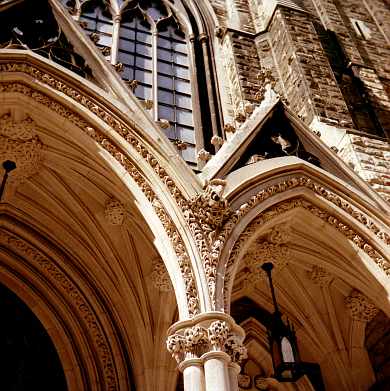
First Presbyterian Church sits on Sixth Avenue next to Trinity Cathedral (Episcopal) and just across the street from the Duquesne Club. These are the bastions of old money in Pittsburgh, and plenty of that money went into the elaborate Gothic ornamentation of the church building, not to mention its famous stained glass by Tiffany.

Manchester is a relatively poor neighborhood rich in Victorian architecture. Nowhere else in Pittsburgh are there so many uninterrupted blocks of Victorian rowhouses with elaborate front porches. The restoration of the neighborhood was a pet project of Richard Mellon Scaife, the eccentric billionaire owner of the Tribune-Review.
The elaborate entrance portal to Highland Park at the end of Highland Avenue could never be made today. Think of the protests! It would be called a waste of money, an exploitation of women, or even obscene. In Victorian times, it was probably called “beautiful,” but that is an outmoded form of discourse.


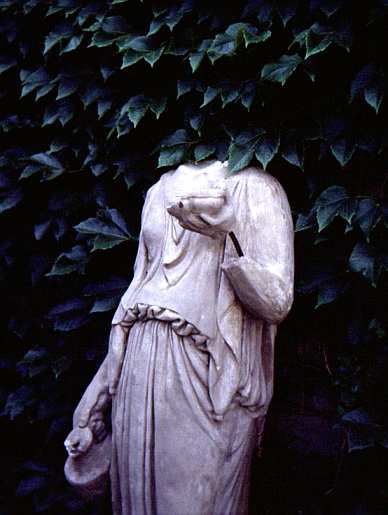
A headless statue accumulated from somewhere, now standing up to its neck in Boston ivy outside the Mattress Factory art museum.
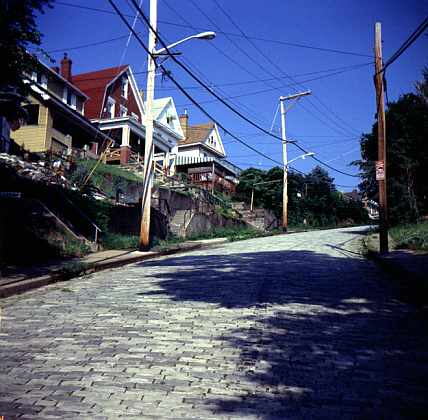
Pittsburghers call it “cobblestone,” although real cobblestones are irregular roundish rocks, much harder to drive on than Belgian block. As a pavement, Belgian block is just about ideal for neighborhood streets. It lasts almost forever, it’s attractive, and it slows traffic to a safe pace on a residential street. Since most people think the object of driving is to go as fast as possible, most people hate Belgian block, and more and more Belgian-block pavements are disappearing under smooth asphalt. But there are still hundreds of Belgian-block streets in Pittsburgh and the inner suburbs.
In neighborhoods like Brookline, cheaper brick pavements were used on flat stretches of street. The more expensive Belgian block was reserved for hills, where it gives far better traction in wet weather than brick does.
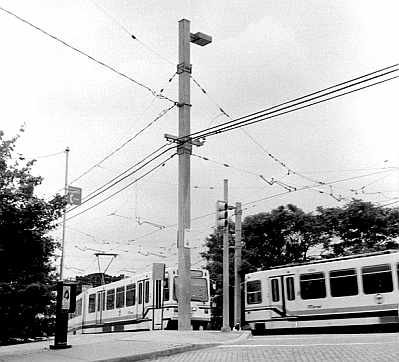
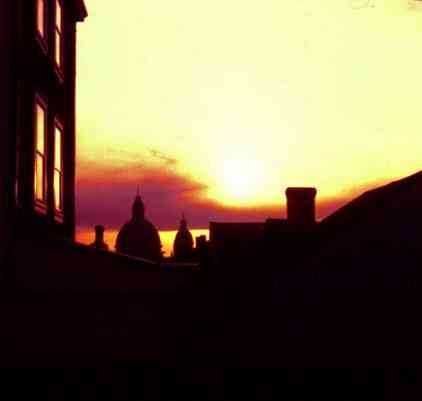
The rooftops of Polish Hill silhouetted in the sunset. In the background, the domes of Immaculate Heart of Mary Church.

